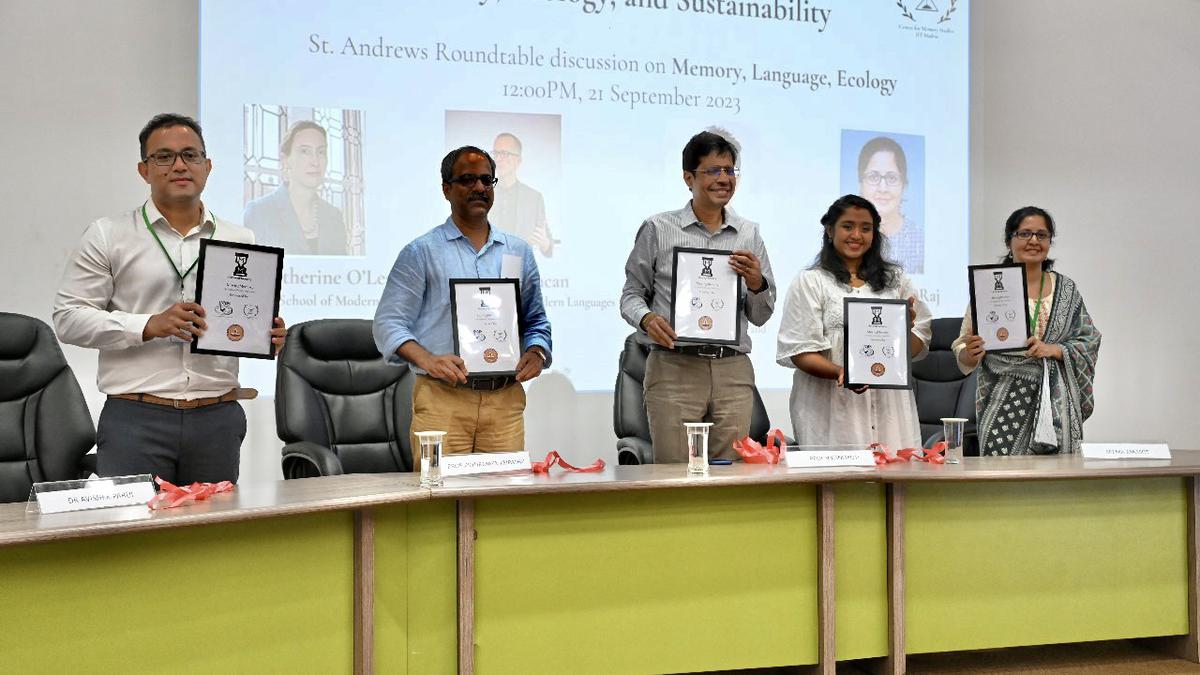
MovingMemory, an ARVR app for memory studies, launched at international conference in IIT-Madras
The Hindu
At IIT-M, ARVR app MovingMemory launched to capture memory models digitally. 500 participants from across world attended ‘Memory, Ecology, and Sustainability’ conf. to bridge tech studies and humanities. App seeks to address climate change, eco-friendly living, digital security through interactive, immersive models.
An augmented reality/virtual reality (ARVR) app called MovingMemory was launched at the second annual international conference of the Indian Network for Memory Studies and the Centre for Memory Studies, which was inaugurated at Indian Institute of Technology-Madras (IIT-M) on Wednesday.
The application was developed by faculty coordinators Avishek Parui and Merin Simi Raj of the Centre for Memory Studies at the institute. It captures moving models of memory through digital reconstruction and enables the user to select any desired avatar and navigate through these three-dimensional spaces.
The ‘Memory, Ecology, and Sustainability’conference, inaugurated on Wednesday, is being attended by over 500 participants from across India, the United Kingdom, Germany, New Zealand, Morocco, Canada, Sweden, the United States of America and Bangladesh. The meeting will examine human-centric technologies, policies of cultural memory, and sustainable development goals across the world.
V. Kamakoti, IIT-M Director; Seema Massot, Director, American Centre, U.S. Consulate General, Chennai; and Jyotirmaya Tripathy, head, Department of Humanities and Social Sciences participated in the inaugural event.
Mr. Parui said the conference sought to bridge technology studies and humanities to offer a more complex model of engaging with memory, ecology, and sustainability, besides relating to issues such as disaster studies, anticipatory governance, and durability. Mr. Kamakoti said it was crucial to incorporate collective memory in human understanding and ability to anticipate policies related to ecological issues such as climate change.
The flu epidemic in the early 20th Century and the 2015 Chennai floods highlighted the opportunity to study human and non-human forms of memory, such as the memory of water and nature, through interdisciplinary and collaborative formats to further memory studies as a discipline.
Ms. Massot suggested collaborative possibilities between the Centre for Memory Studies and the American Centre at the U.S. consulate to study issues such as water preservation, climate change, and eco-friendly living, so that they may be achieved through digital interactive and immersive models.

 Run 3 Space | Play Space Running Game
Run 3 Space | Play Space Running Game Traffic Jam 3D | Online Racing Game
Traffic Jam 3D | Online Racing Game Duck Hunt | Play Old Classic Game
Duck Hunt | Play Old Classic Game











